UNWomen The United Nations Entity for Gender Equality and the Empowerment of Women

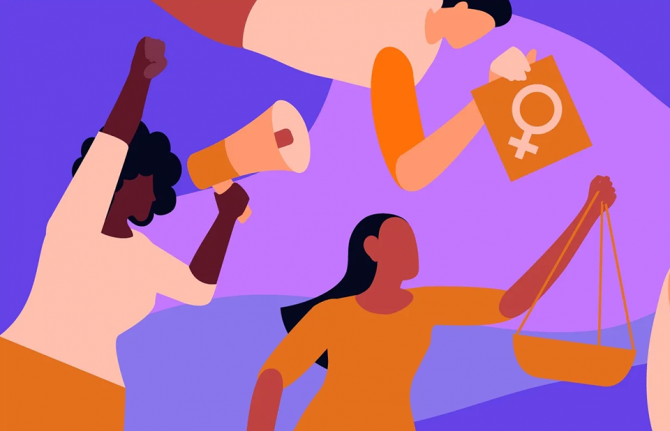
Press Release
UNAIDS calls for an end to violence against women and girls. No excuses
25 November 2024 25 November 2024GENEVA, 25 November 2024—Gender-based violence persists as one of the most appalling violations of human rights. It also thwarts efforts to end AIDS as a public health threat because intimate partner violence is linked with a heightened risk of HIV acquisition among women and undermines access to testing and treatment.
Globally, one in eight women and girls experiences sexual violence before the age of 18. Harmful gender norms, low prioritization of safe, qualitative and affordable sexual and reproductive health services, as well as fragile health systems heighten women’s risk of contracting HIV and prevent access to HIV services.
In addition, women and girls living with HIV are too often stigmatized by health service providers. They also experience pressure not to have children, forced and coerced sterilization or termination of a pregnancy. All violations of human rights.
“We must counter patriarchy and poverty to keep girls in school and we must provide women and girls safe spaces, economic opportunities and ensure their recognition and leadership,” said Winnie Byanyima, UNAIDS Executive Director.
“We must also fight rigid gender norms and stereotypes that perpetuate unhealthy masculinity and violence based on gender."
Gender-related killings of women and girls are the deadliest outcome of gender-based violence with a woman being killed every 11 minutes. This is unacceptable. In 2022, the number of women and girls killed intentionally – nearly 89,000 – is the highest yearly number recorded in the past 20 years. Women from key populations – transgender women, sex workers, and LGBTQ+ human rights defenders - are also at particular risk of femicide according to the Inter-American Commission on Human Rights (IACHR).
On the International Day for the Elimination of Violence against Women this year, the campaign kicked off with the theme ‘UNiTE to End Violence against Women and Girls: Towards Beijing +30.’ These 16 Days of Activism remind us that 30 years after the Beijing declaration - a blueprint for achieving gender equality and women’s and girls’ rights everywhere - the world is far from such a gender equal world.
UNAIDS remains committed to working collaboratively with governments, business, civil society, communities and especially women’s movements and networks to create a world where the rights and dignity of all women and girls are respected and protected, including women and girls living with, at risk of and affected by HIV.
Started in 1991, the 16 Days of Activism against Gender-Based Violence is an international campaign that kicks off on 25 November, the International Day for the Elimination of Violence against Women, and runs until 10 December, Human Rights.
UNAIDS
The Joint United Nations Programme on HIV/AIDS (UNAIDS) leads and inspires the world to achieve its shared vision of zero new HIV infections, zero discrimination and zero AIDS-related deaths. UNAIDS unites the efforts of 11 UN organizations—UNHCR, UNICEF, WFP, UNDP, UNFPA, UNODC, UN Women, ILO, UNESCO, WHO and the World Bank—and works closely with global and national partners towards ending the AIDS epidemic by 2030 as part of the Sustainable Development Goals. Learn more at unaids.org and connect with us on Facebook, Twitter, Instagram and YouTube.

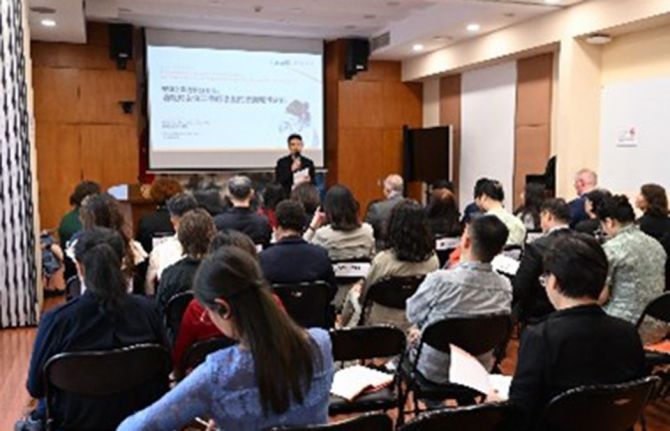
Feature Story
Women living with HIV in China unite to confront discrimination
14 October 2024
14 October 2024 14 October 2024There are around 1.4 million people living with HIV in China and women make up around 23.7% of them, according to the latest data from Chinese health authorities. Among those living with HIV are pregnant women who are in a particularly vulnerable position due to the stigma surrounding the disease.
In order to counter such stigma and discrimination, women living with HIV and Hepatitis B came together at The Voice of Resilience event to tell their stories and to call for additional resources for community-based organizations (CBOs) working on the frontlines providing services for women living with and affected by HIV.
In 2023 alone, more than 5,000 pregnant women were diagnosed with HIV and over 400,000 with hepatitis B, and some of them were diagnosed at very late stage to be able to receive HIV services to prevent transmission to their children, according to China’s National Health Commission. Even though services are in place to prevent the transmission of HIV to their babies, discrimination, including denial of healthcare, obstructs women from accessing such services.
“I received a call from the doctor telling me that I couldn’t receive services from their hospital because I was HIV positive,” explained Xia Jing, one of the mothers, after she went to a general hospital in Beijing for a routine maternal exam. She still cannot hold her tears when she remembers her traumatic experience. She challenged back and told the doctor r that under the law they had no right to reject her.
She was eventually referred to Beijing’s You’an Hospital, a designated hospital for infectious diseases and people living with HIV where she delivered her baby. Now she is a happy mother of a four-year-old boy. Doctor Zhu Yunxia was the doctor who helped Jing deliver her baby. Dedicated to her job for more than 30 years, she is proud of having helped so many women deliver healthy babies. She calls for empathy with people facing discrimination and unfair treatment and urges all people to look at women living with HIV without prejudice.
“Stigma undermines public health objectives by creating barriers to accessing health and social services and can reduce the quality of the services that members of affected communities receive,” said Mark Vcislo, the First Secretary at Canadian Embassy to China, which has supported the work to tackle stigma. He called for breaking down “the prejudices that can prevent and deter marginalized communities, including persons living with HIV, from accessing the health and social services they need and deserve.”
Community-based organizations (CBO) are vital support for women living with HIV. Sister Xin, for instance, who herself received help from community volunteers when she was first diagnosed with HIV, created Firefly, a community-based organization that has help more than 20,000 women living with HIV in the last 20 years. Zhang Yu whose CBO supports women living with HIV in rural areas of China’s southwestern Yunnan Province, called for more resources for CBO’s work. “CBOs are struggling with their survival due to lack of resources,” she said. “I sincerely hope the government, the charity organizations and everybody can support us to continue our work.”
China has developed a strong and ambitious plan to significantly reduce the transmission rates of HIV, syphilis, and hepatitis B by 2025 outlined in China Women’s Development Plan and Healthy China 2030. China has achieved around 99 percent national screening rates among pregnant women living with HIV over the past five years. In 2023 alone, more than 9 million pregnant women have received HIV testing services.
The Chinese government has partnered with UN agencies for the “last mile” by building a patient-centred and family-centred community service model to enable a holistic set of services and help break the barriers for both mothers and infants.
“Thanks to the combination of development of technology and social progress, women living with HIV can today give birth to healthy babies,” said Sister Xin.
Read the profile of the storytellers and more unsung community heroes committed to helping mothers and babies: http://www.unaids.org.cn/page122?_l=en&article_id=1233.
Region/country
Related
 Status of HIV Programmes in Indonesia
Status of HIV Programmes in Indonesia

24 February 2025

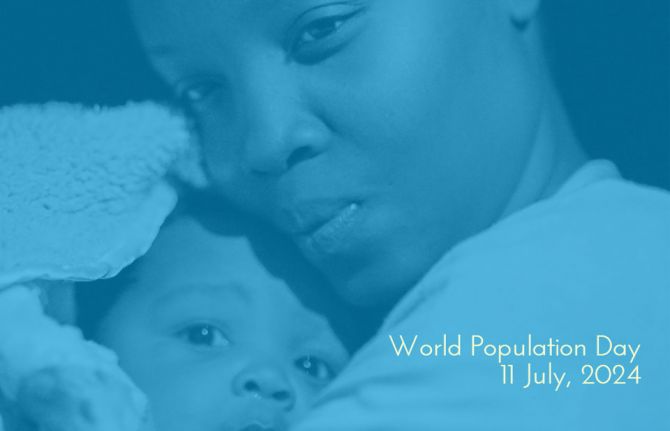
Press Statement
Joint UN statement calling for sexual and reproductive health and rights for all
11 July 2024 11 July 2024In April, at the United Nations Headquarters in New York, governments renewed their commitment and determination to accelerate the implementation of the Programme of Action of the 1994 International Conference on Population and Development (ICPD), the principles of which are embedded in the United Nations Sustainable Development Goals (SDGs), including commitments to ensure universal access to sexual and reproductive health-care services and to advance reproductive rights.1
Significant progress has been made over the past three decades. Since 1990, the number of women using modern contraception has doubled. Since 2000, maternal mortality has declined by 34 per cent. By 2022, access to HIV treatment had averted an estimated 20.8 million deaths globally. More recently, however, this progress has stalled and in some instances is reversing. Looking forward, the prospect of continued progress is far from guaranteed. The ongoing effects of the COVID-19 pandemic, persistent and increasing conflict, climate change, rising inequalities and deepening polarization are all undermining access to quality, essential health services. These setbacks demand urgent action.
Women and girls are disproportionately affected by these challenges, hindering their right to make informed decisions and exercise full bodily autonomy without coercion, violence or discrimination – fundamental human rights. Equitable and sustainable access to human rights–based sexual and reproductive health interventions and information remains beyond the reach of many – especially marginalized women, adolescent girls and those living in humanitarian crises and conflict zones. The latest data show that close to half of women of reproductive age cannot make their own informed decisions about whether or when to become pregnant, and many still lack the autonomy and agency to fully exercise their reproductive rights.
On World Population Day, as UN agencies mandated to advance the health and rights of all people and ensure no one is left behind, we call upon the global community, including governments, donors, civil society organizations, and the private sector to strengthen access to a comprehensive package of sexual and reproductive health services as part of universal health coverage, delivered through resilient health systems including at the primary healthcare level. We underscore the need to implement evidence-based, normative guidance to strengthen access to affordable, high quality and rights-based care. To ensure services are acceptable to all, efforts are needed to eliminate stigma and discrimination and dismantle harmful social and gender norms.
We also call for accelerated access to comprehensive sexuality education and strengthened action across social sectors, such as education and gender, to enhance the health and well-being of girls and women throughout their lives. Promoting comprehensive sexual and reproductive health and rights is not only the right thing to do – it is also the smart thing to do. Investing in women’s and girls’ reproductive rights and agency and expanding access to services is proven to have remarkable returns, including in terms of social wellbeing, economic prosperity and peace, which our world so desperately needs. Additional financing from all sources – domestic, international, public, private – is essential to create long-term positive outcomes for women and girls.
We must also urgently support the increasing efforts of young people, women and communities to speak up about sexual and reproductive health concerns and to design and deliver solutions that respond to their needs and to the realities of a changing world, where climate change in particular, affects sexual and reproductive health and rights. An inclusive, bottom-up approach to designing and delivering health interventions with and for communities can deliver more sustainable results and reach those who are furthest left behind.
We urge the public and private sectors to collaborate in exploring cutting-edge technologies like telemedicine, artificial intelligence, big data analytics and predictive modeling to bridge geospatial gaps and expand access to essential services, particularly in remote and underserved areas. At the same time, we call on innovators to address the risks inherent in these new technologies, including gender gaps in access, technology-facilitated gender-based violence, and systematic biases embedded in tech design.
Finally, we call upon governments, communities, civil society organizations and the private sector to unite to prioritize universal access to comprehensive sexual and reproductive health, in ways that advance gender equality and promote the full realization of human rights, in line with the groundbreaking vision of the ICPD Programme of Action. We ask for more than a commitment, more than business as usual — this is an appeal to collaborate and innovate in ways that ensure everyone can realize their rights to health, dignity and security. As we head towards the Summit of the Future at the United Nations General Assembly in September, now is the time to act boldly and decisively, forging a path towards a more just, equitable and sustainable world for all.
Thirty years ago in Cairo, 179 governments adopted a framework that recognized sexual and reproductive health and reproductive rights and the empowerment of women and girls as foundational pillars of sustainable development – the landmark Programme of Action of the International Conference on Population and Development. As UN agencies, we stand together committed to advancing comprehensive sexual and reproductive health and rights, which are integral to everyone’s right to the enjoyment of the highest attainable standard of physical and mental health and essential for the achievement of gender equality.
[1] https://www.un.org/development/desa/pd/content/regional-reviews-icpd-programme-action
UNAIDS
The Joint United Nations Programme on HIV/AIDS (UNAIDS) leads and inspires the world to achieve its shared vision of zero new HIV infections, zero discrimination and zero AIDS-related deaths. UNAIDS unites the efforts of 11 UN organizations—UNHCR, UNICEF, WFP, UNDP, UNFPA, UNODC, UN Women, ILO, UNESCO, WHO and the World Bank—and works closely with global and national partners towards ending the AIDS epidemic by 2030 as part of the Sustainable Development Goals. Learn more at unaids.org and connect with us on Facebook, Twitter, Instagram and YouTube.

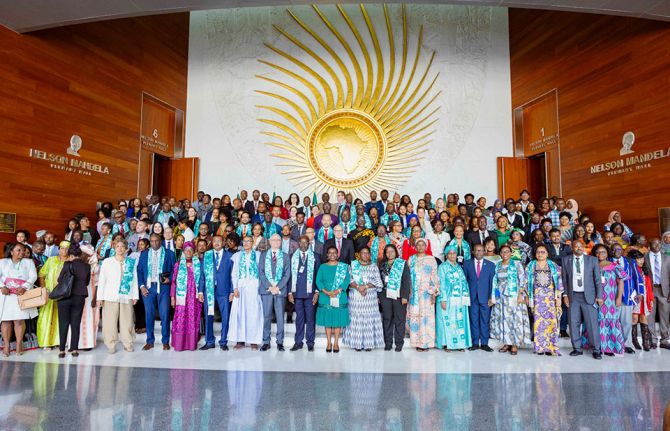
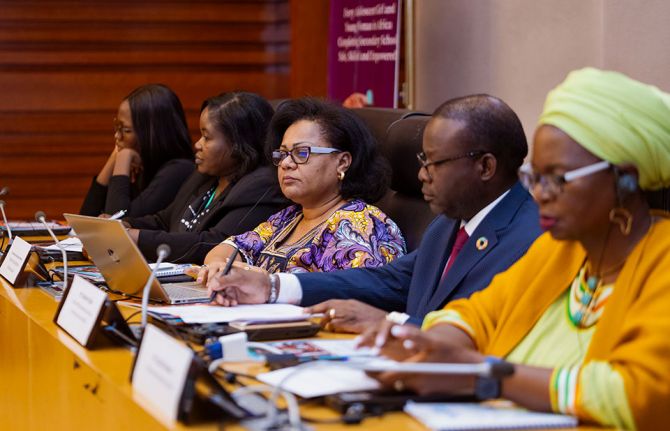

Feature Story
Girls’ education for HIV prevention at 1st Pan-African Conference on Girls’ and Women’s Education in Africa
08 July 2024
08 July 2024 08 July 2024Girls’ education as a tool to prevent HIV infection has been centered at the 1st African Union Pan-African Conference on Girls’ and Women’s Education in Africa. This followed African leaders designating education as the 2024 African Union theme of the year.
At a high-level side event hosted by the Education Plus Initiative on the first day of conference held at the African Union Commission in Addis Ababa, Ethiopia, leaders, girls’ and women’s networks and advocates called for greater investments in girls’ education.
“Some people claim that providing girls with secondary education is too expensive. Such claims fail to consider the exponentially higher cost of not educating them,” said UNAIDS Executive Director, Winnie Byanyima. “We can get all our girls and boys to complete secondary education; that should be our legacy."
UNICEF calculates that 34 million girls in sub-Saharan Africa are out of secondary school. According to the Global Education Monitoring (GEM) Report 2023, in all regions in Africa, there are more girls out of school at the secondary level than boys, with gender disparities worsening as children move up to higher levels of education in favour of boys over girls. In sub-Saharan Africa, less than half of adolescent girls complete secondary education, their percentage standing at 42% and there has been no progress at all in closing this gap in the past 20 years. Sub-Saharan Africa is the region furthest from parity at the expense of girls, with no progress since 2011 at the lower secondary level and since 2014 in upper secondary.
Gender is a key factor linked to disparities in enrolment, retention, completion, and learning outcomes through social conditioning, gender-based differences in parental expectations and education-related investments, child marriages and early childbearing, female genital mutilation, child labour, gender-based violence, period poverty and discrimination.
More than forty years into the HIV response, Africa remains an epicenter of the AIDS epidemic with adolescent girls and young women being disproportionately affected. Every week 3100 adolescent girls and young women acquired HIV in sub-Saharan Africa. Every three minutes, an adolescent girl or young woman aged 15-24 years acquired HIV in 2022 in sub-Saharan Africa. Adolescent girls and young women aged 15-24 years in the region were more than three times as likely to acquire HIV than their male peers in 2022.
UN agencies, African Union representatives, government ministers, and young women leaders called for accelerated actions to translate commitments to action through leveraging girls' education for gender equality and preventing HIV, child marriage, teenage pregnancies, violence, gender-related stigma and discrimination in Africa.
Speakers emphasized the connection between health and education. Ministers spoke about key policy reforms and best practices aimed at promoting girls' education, including creating safe and inclusive school environments, strategies to get girls into secondary school, and the readmission policy that addresses high dropout rates due to pregnancy. UN co-leads emphasised the need for improved collection of data disaggregated by sex and other relevant population characteristics to better understand educational participation, progression, and learning, and using gender-sensitive data for policymaking and planning.
Other issues highlighted included the integration of digital literacy programs into the secondary education and vocational training curriculum to facilitate smooth transitions from school to employment; integrate gender equality into all aspects of the education system, including curriculum-based comprehensive sexuality education and life skills, address gender-based violence within schools and discriminatory laws and practices, and access to information, non-discriminatory HIV and sexual and reproductive health services access.
Young women leaders spoke on the role of partnerships and young women's leadership. Participants highlighted the upcoming 30th anniversary of the Beijing Declaration as an opportunity moment to accelerate accountability and commitments, as well as the CSW Resolution 60/2, Women, the Girl Child and HIV and AIDS as significant mechanisms to address political and resource gaps so no woman or girl is behind in the HIV response.
Education Plus is a rights-based, gender-responsive action agenda to ensure adolescent girls and young women have equal access to quality secondary education, alongside key education and health services and support for their economic autonomy and empowerment. Co-led by five UN agencies, the initiative builds on existing frameworks like the Transforming Education Summit, the Continental Education Strategy for Africa (CESA) and the Dakar Education for All (EFA) Declaration to push for access and completion of education for women and girls in Africa.
Quotes
" Some people claim that providing girls with secondary education is too expensive. Such claims fail to consider the exponentially higher cost of not educating them. We know the consequences when girls can’t finish secondary school: higher risks of sexual violence, early marriage, unwanted pregnancy, complications in pregnancy and childbirth, and HIV infection. But when a girl completes secondary school, it helps her to be safe and strong. If all girls complete secondary education, adolescent pregnancy could be cut by 75% and early marriage could be virtually eliminated. An extra year of secondary school can increase women’s eventual wages by 15-25%. We can get all our girls and boys to complete secondary education; that should be our legacy."
We must recognize the intersecting challenges girls face, including HIV. They face extraordinarily high levels of HIV infections. Women and girls represented 63% of all new HIV infections in Africa in 2022. Empowering girls with knowledge is key to ending AIDS as a public health threat. Education is the best HIV prevention tool available.”
“African nations should ensure that young people not only gain vital knowledge but also acquire life skills, values, attitudes, and make decisions in order to live healthy and fulfilled lives. Through the AU strategy, we will see increased awareness about the importance of investing in education and the health of children and adolescents.”
“Girls’ education is not only a right, but will also result in broad socio-economic development for countries. We are creating a safe and conducive environment for adolescent girls and young through the criminalization of child marriage, FGM, school-related gender-based violence, and sexual harassment, particularly sexual exploitation perpetrated by teachers. We provide life skills and comprehensive sexuality education in schools and ensure an inclusive school environment for children with disabilities, with specific attention to girls. We have enhanced social protection strategies, including cash transfers to poor households to ensure that girls go to school and are not engaged in care work and child labour.”
“Girls who dropped out due to early pregnancies or early unwanted pregnancies are readmitted. We have a national girls’ education strategy aimed at facilitating the pace at which Malawi may achieve sustainable development goals. We emphasize universal primary education, the promotion of gender equality and empowering women.”
“We are trying to remove the cultural norm barriers and negative gender stereotypes that contribute to gender-based violence and discrimination against adolescent girls and young women with a male engagement strategy. Inclusive education provides special provisions for the less privileged and disadvantaged children and youth; user-friendly infrastructure, teaching and learning materials and provision of expert teachers.”
“Education is a human right. The Education Plus Initiative is driving policy changes in Africa. Education Plus seeks to keep adolescent girls and young women in school by simply unequivocally saying no to child marriage, no to violence, no to HIV infections, no to gender-related stigma, and of course, no to harmful practices. We want to keep girls in secondary education and make sure they stay there and complete their education. We do that by supporting sexual and reproductive health and rights, comprehensive sexuality education and work for integration HIV awareness, preventing and managing learners pregnancies and addressing school-related gender-based violence.”
“We need to scale up effective interventions to increase HIV knowledge and transform gender norms, and hence girls’ access to services. We should explore the potential of innovative solutions offered by digital technologies to mobilize and provide young women and adolescent girls with comprehensive HIV information. Let's do more, particularly for those girls living with HIV to be meaningfully engaged in the HIV response. Young women must have a formal seat and a safe space to raise their needs. let's move from rhetoric to action.”
“The numbers are unfortunately very clear: highest adolescent pregnancy rates of the world are in sub-Saharan Africa, highest percentages of women first married or in union before 18, young women more than 3 times as likely of HIV infection, or unacceptably high rates of justification of wife beating among adolescents. Fortunately, we benefit from a strong set of political commitments and strategies to face these issues. There is the Education Plus Initiative, the WCA Commitment for Educated, Healthy and Thriving Adolescents and Young People, the ESA Commitment, and the AU Continental Strategy on Education for Health and Wellbeing of Young People in Africa. It is high time to convert the commitments and strategies in concrete results for adolescent girls and young women.”
“Girls need an affirming environment. Where there's ignorance, there's a lot of resistance to education and sexuality education in the curriculum. We need to engage to change the environment, talking with parents, men and boys, community members and leaders for them to have access to information because they have a great influence on the lives of these young people. We need inclusive advocacy, especially the rural grassroots and true localization of information and interventions.”
Our work
Related
 Zambia - an HIV response at a crossroads
Zambia - an HIV response at a crossroads

24 February 2025

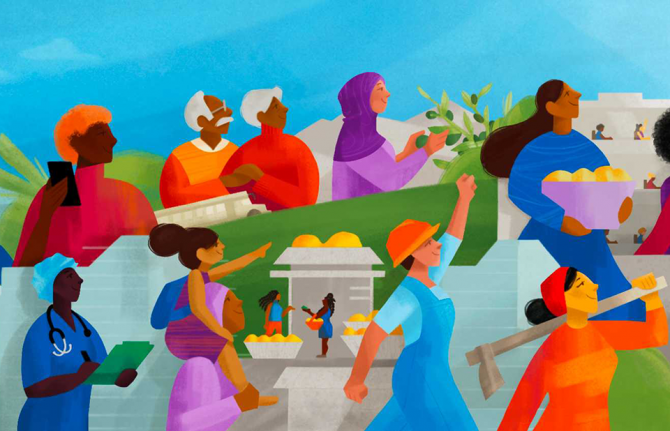
Press Release
UNAIDS welcomes governments’ commitment to end AIDS, tackle gender-based violence, discrimination and inequalities
25 March 2024 25 March 2024Resolution on ‘Women, the Girl Child and HIV and AIDS’ updated, strengthened and adopted by consensus at the 68th session of the Commission on the Status of Women
GENEVA/NEW YORK, 25 March 2024—On 22 March, governments attending the 68th session of the Commission on the Status of Women (CSW) adopted, by consensus, a resolution focused on advancing the rights and empowerment of women and girls as part of efforts to end AIDS.
The updated resolution 60/2, Women, the Girl Child and HIV and AIDS, underscores the urgent need to prioritize the health and rights of adolescent girls and young women in the context of the ongoing global AIDS pandemic. It recognizes that adolescent girls and young women are still disproportionately affected by HIV due to various socio-economic factors, including gender inequalities, poverty, and lack of access to education and healthcare.
The resolution underscores the imperative of advancing gender equality as central to ending AIDS, and reaffirms the commitments made in the 2021 United Nations General Assembly Political Declaration on HIV and AIDS. The resolution calls for all governments to enact and intensify the implementation of laws and policies to eliminate all forms of gender-based violence, as well as end HIV-related stigma and discrimination against women and girls. It also calls for promoting active and meaningful participation and leadership of women and girls living with HIV in the AIDS response.
Winnie Byanyima, Executive Director of UNAIDS, expressed optimism and her profound appreciation for the adoption of the resolution, stating, "By committing to prioritizing the health and rights of women and girls in all their diversity and addressing HIV comprehensively, leaders have helped safeguard the health of women and girls, which will result in a more equitable and resilient future.”
Nyaradzayi Gumbonzvanda, Deputy Executive Director of UN Women, a cosponsoring organization of UNAIDS which was instrumental in organizing and ensuring a successful outcome of CSW said, “Empowering women, securing rights and achieving equality is an imperative.”
UNAIDS applauds the leadership of Southern African Development Community (SADC) and Angola as its current chair for successfully championing the update of the resolution which was initially adopted in 2016. The updated resolution will continue to serve as a guiding framework for governments, communities and civil society groups, and all stakeholders as they collaborate to safeguard the rights of women and girls living with, at risk of and affected by HIV.
Crucially, UNAIDS emphasizes the importance of translating the commitments outlined in the resolution into concrete actions at the national, regional, and global levels. Efforts must focus on closing the gender gap in HIV prevention, treatment, care and support, while also addressing the underlying social, economic, and structural factors that perpetuate gender-based discrimination, violence, and inequalities and increase the vulnerability of women and girls to HIV.
UNAIDS remains steadfast in its commitment to working collaboratively with governments, civil society, and other partners to create a world where the rights and dignity of all women and girls are respected, protected, and fulfilled, including women and girls living with, at risk of and affected by HIV.
UNAIDS
The Joint United Nations Programme on HIV/AIDS (UNAIDS) leads and inspires the world to achieve its shared vision of zero new HIV infections, zero discrimination and zero AIDS-related deaths. UNAIDS unites the efforts of 11 UN organizations—UNHCR, UNICEF, WFP, UNDP, UNFPA, UNODC, UN Women, ILO, UNESCO, WHO and the World Bank—and works closely with global and national partners towards ending the AIDS epidemic by 2030 as part of the Sustainable Development Goals. Learn more at unaids.org and connect with us on Facebook, Twitter, Instagram and YouTube.
Contact
UNAIDS New YorkRupa Bhadra
tel. +1 646 468 4129
bhadrar@unaids.org
UNAIDS Geneva
Sophie Barton Knott
tel. +41 79 5146896
bartonknotts@unaids.org

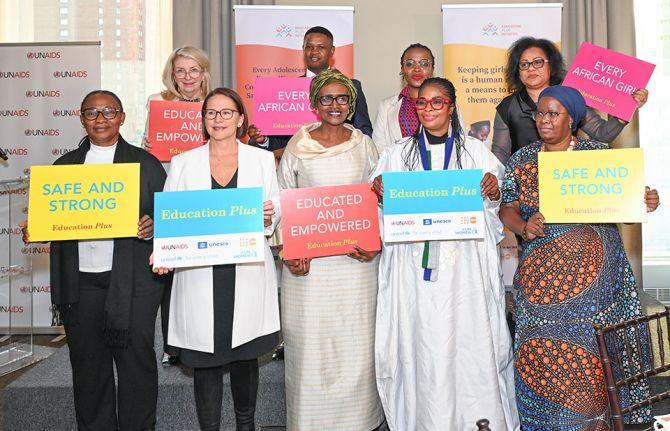
Feature Story
Invest in women and girls’ education and health rights to end AIDS in Africa
11 March 2024
11 March 2024 11 March 2024Despite substantial declines in new HIV infections globally, the HIV/AIDS epidemic continues to disproportionately impact adolescent girls and young women in many countries, particularly in sub-Saharan Africa. In 2022, there were 3,100 new weekly infections among adolescent girls and young women aged 15-24 years. In sub-Saharan Africa, adolescent girls and young women accounted for more than 77% of new infections among people aged 15-24 years in 2022.
That’s why Education Plus Initiative co-hosted with the Grand Duchy of Luxembourg a high-level side event on the margins of the 68th Commission on the Status of Women (CSW68) to bring attention to the cost of inaction, calling for more consistent investment in education, health and economic rights of adolescent girls and young women in Africa. The CSW, which runs from 11- 22 March 2024, is the United Nations largest annual gathering on gender equality and women’s empowerment, with this year’s priority theme, Accelerating the achievement of gender equality and the empowerment of all women and girls by addressing poverty and strengthening institutions and financing with a gender perspective.
Speakers included four ministers from Luxembourg, Benin, Sierra Leone, and Uganda, senior government officials from Cameroon and South Africa, and heads of UN agencies who co-lead Education Plus, ATHENA network. Hannah Dolly Kargbo, a young activist from Freetown, Sierra Leone, and founder of the Girls Advocacy Development Network (GADNET), pre-recorded a video that showed her work with young people to advance rights.
The event, Education Plus investment cases for transformative results: leveraging girls completion of secondary education for gender equality and HIV prevention mobilized government, partners and key stakeholders towards accelerated actions and translate commitments to action for gender equality and HIV prevention in Africa.
The costs of inaction on the rates of HIV in adolescent girls and young women remain significant, not only counted in terms of the harmful impacts on girls’ lives but in how they undermine prospects for poverty eradication and the well-being and resilience of families, communities, societies and national economies. For instance, the lack of educational and economic opportunities that result in women’s diminished labour force participation is estimated to cost the African region US$60 billion in economic losses every year. And yet Africa could gain US$500 billion per year through multi-sectoral investments in adolescents and youth, especially girls, by capitalizing on demographic windows of opportunity.
Education Plus calls for investment in the education and empowerment of adolescent girls and young women, and 15 champion countries are already committed to using education as a means to reduce high HIV rates. Investments that guarantee education for all young people, violence-free school environments, provision of stigma-free health services, comprehensive sexuality education, access to sexual reproductive health and rights services and economic autonomy and empowerment are key to ending AIDS as a public health threat by 2030. When adolescent girls and young women complete secondary school, their risk of getting HIV is reduced significantly.
Quotes
“We must take immediate action to change this situation, get girls back to school and ensure they complete secondary education. This requires commitments made by African member states to address gender inequalities, stigma and discrimination that fuels these infections fulfilled. There is progress in Africa, but it simply isn't fast enough. That's why we have this initiative - Education Plus”
“What I find extremely worrying is the surge in extreme conservative policies on sexual and reproductive health and rights. This is across the world but also in sub-Saharan Africa. We must avoid going back in time. We need to empower girls because it's the only way that we will have women empowered.”
“We can make HIV a disease of the past, but we can't do it without listening to understanding and supporting young girls and women to take the lead. Now is the time to ensure that every girl lives a life free from violence with unhindered access to quality education, to sexual and reproductive health rights and services and with meaningful opportunities to lead a productive life.”
"We know that investing in girls' education and health is an important lever. We can't build our country's development by leaving out 53% of our population"
“Under the radical inclusion policy, we are bringing pregnant girls back to school, retain girls when they become pregnant. So, education and HIV go a long way! When they are educated and have an awareness of HIV, their well-being, and reproductive and sexual rights, they are more assertive when negotiating safer sex.”
“Adolescent girls and young women's organizations are the least funded. Only less than 5% funding of gender equality goes to women's rights organizations, even less goes to young feminist-led organizations. We need to keep the ones who are most affected, most impacted leading the response. We're not here to ask for leadership but to offer leadership to co-lead alongside you.”
"It is now a policy that when constructing a school, you must have sanitary facilities separate for both girls and boys, and girls changing rooms and space. We also have intensified education, communication and advocacy on HIV/AIDS and opened schools to give information on sexual and reproductive health. We are working with girls who have dropped out of school to skill them."
“Girls are unable to live up to their full potential because of barriers, but those barriers are dismantlable. Africa is not poor, but African women and girls are licking a spoon, a spoon they do not even own, so let's shift the discourse so that the resources also available in the countries are prioritized for investing in education, HIV prevention and investing in girls.”
Watch
Our work
Related

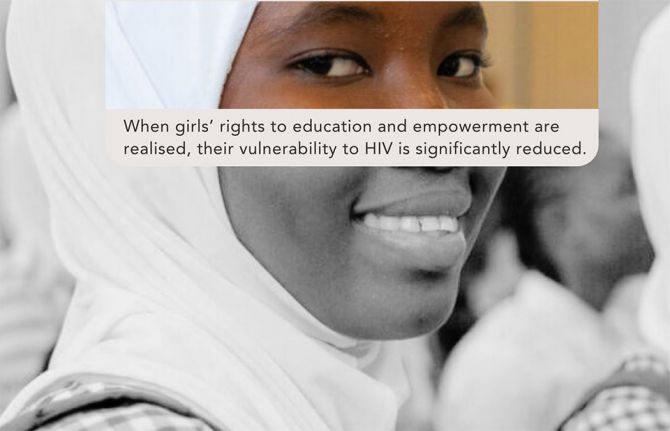
Press Release
At the 68th Commission on Status of Women UNAIDS calls for action to achieve gender equality and end AIDS
11 March 2024 11 March 2024GENEVA/NEW YORK, 11 March 2024 - UNAIDS is gearing up for the 68th session of the Commission on the Status of Women (#CSW68) which begins today and will run until 22 March 2024. #CSW68, the United Nations largest annual gathering on gender equality and women’s empowerment, is being held this year under the priority theme, Accelerating the achievement of gender equality and the empowerment of all women and girls by addressing poverty and strengthening institutions and financing with a gender perspective.
Despite progress, no country has achieved gender equality to date, and violations of women’s human rights and gender-based violence are continuing to fuel the AIDS pandemic. The world is off track to meet the gender targets set out in the Sustainable Development Goals (SDGs) and in many of the world’s poorest countries, the debt crisis is squeezing out investment in education, health, and social protection, particularly hurting women and girls.
Around the world today, 129 million girls are out of school, denying them lifesaving information on how to protect themselves from HIV. Every three minutes, an adolescent girl or young woman (15-24 years) acquired HIV in 2022 in sub-Saharan Africa, and across Africa, AIDS remains the leading cause of death among women of reproductive age.
"There can be no more excuses. Ending AIDS among women and girls is not only a moral imperative but also a strategic priority for achieving the Sustainable Development Goals,” said Winnie Byanyima, Executive Director of UNAIDS. “Only by protecting and investing in the rights of women and girls can we protect their health, and only by protecting women’s health can we end the AIDS pandemic. We must seize this opportunity to accelerate progress towards a world where every woman and girl can, not just survive, but thrive."
During #CSW68 UNAIDS will be co-hosting several key events including a high level meeting co-convened by the Grand Duchy of Luxembourg and Education Plus (a joint initiative of UNAIDS, UNESCO, UNFPA, UNICEF and UN Women) which will mobilize government, partners and stakeholders to accelerate scaled up actions on women’s rights and leverage girls’ education for gender equality and HIV prevention across Africa.
UNAIDS is urging renewed action and anticipates strong outcomes from #CSW68. UNAIDS looks forward to the partnerships that will be forged to accelerate progress towards gender equality and ending AIDS as a global public health threat.
UNAIDS remains steadfast in its commitment to working collaboratively with governments, civil society, and other partners to create a world where the rights and dignity of all women and girls are respected and protected, including women and girls living with, at risk of and affected by HIV.
#CSW68, hosted by the United Nations, will convene leaders, advocates, governments, civil society organizations, activists and experts to discuss, agree on actions and investments that can end women’s poverty and advance gender equality.
Follow the Education Plus event live on Tuesday 12 March at 08:00 – 09:30 EST - Making Education Investment Cases Work for Gender Equality and HIV Prevention
UNAIDS
The Joint United Nations Programme on HIV/AIDS (UNAIDS) leads and inspires the world to achieve its shared vision of zero new HIV infections, zero discrimination and zero AIDS-related deaths. UNAIDS unites the efforts of 11 UN organizations—UNHCR, UNICEF, WFP, UNDP, UNFPA, UNODC, UN Women, ILO, UNESCO, WHO and the World Bank—and works closely with global and national partners towards ending the AIDS epidemic by 2030 as part of the Sustainable Development Goals. Learn more at unaids.org and connect with us on Facebook, Twitter, Instagram and YouTube.
Contact
UNAIDS New YorkRupa Bhadra
tel. +1 646 468 4129
bhadrar@unaids.org
UNAIDS Geneva
Sophie Barton Knott
tel. +41 79 5146896
bartonknotts@unaids.org


Press Statement
On International Women’s Day, UNAIDS calls for protecting women’s rights to protect their health
06 March 2024 06 March 2024GENEVA, 6 March 2024— Ahead of International Women’s Day, celebrated on 8 March, UNAIDS is calling for the protection of women’s rights to protect their health.
The world is way off track to meet the gender, equality and HIV targets that are part of the Sustainable Development Goals. At the current rate of progress, it will take an estimated 300 years to end child marriage, 140 years for women to be represented equally in positions of power and leadership in the workplace, and 47 years to achieve equal representation in national parliaments.
In addition, around the world at least five women or girls are killed every hour by someone in their own family. One in three women worldwide experience sexual or gender-based violence.
Women who experience violence are more at risk of acquiring HIV. This risk is heightened for the 600 million women and girls who live in the world’s conflict-affected countries, facing an increased danger of sexual violence. And in the majority of the world’s poorest countries, the debt crisis is squeezing out investment in education, health, and social protection, particularly hurting women and girls.
Women are further threatened by the organized pushback against women’s rights. “Today, women’s hard-won rights are under a globally coordinated, ruthless attack. Those facing the most vicious attack are already the most marginalized women,” said Winnie Byanyima, Executive Director of UNAIDS. “The injustices faced by women are not natural disasters to prepare for, like hurricanes or storms. They are man-made, and, as such, we can unmake them.”
The good news is that across the world, women and girls are leading struggles for equality and rights. Women are standing up against oppression in their homes, workplaces, and communities. Women’s movements are providing direct support to women and girls who face violence, and marching and striking for equality. To protect women’s rights, it is vital to support and resource these community organizations, civil society groups and women’s organizations—the frontline defenders of those rights.
Like justice, health is never given, it is won.
UNAIDS’ call this International Women’s Day, is to protect women and girls’ health, protect women and girls’ rights. In doing so, the world will end AIDS, and will overcome the inequalities driving it.
UNAIDS
The Joint United Nations Programme on HIV/AIDS (UNAIDS) leads and inspires the world to achieve its shared vision of zero new HIV infections, zero discrimination and zero AIDS-related deaths. UNAIDS unites the efforts of 11 UN organizations—UNHCR, UNICEF, WFP, UNDP, UNFPA, UNODC, UN Women, ILO, UNESCO, WHO and the World Bank—and works closely with global and national partners towards ending the AIDS epidemic by 2030 as part of the Sustainable Development Goals. Learn more at unaids.org and connect with us on Facebook, Twitter, Instagram and YouTube.
Watch Winnie Byanyima's message

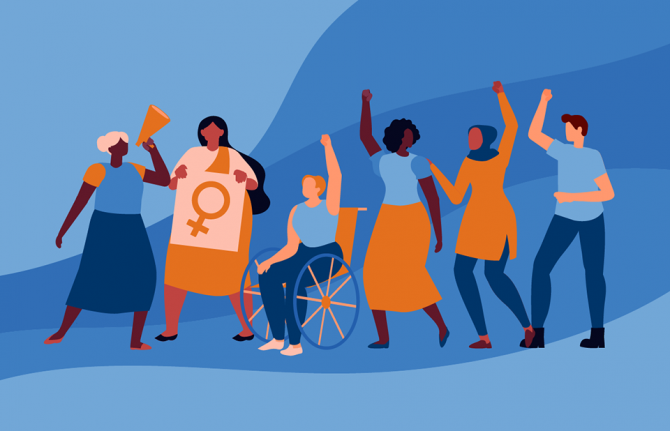
Press Statement
Invest in women and girls: Let communities lead
24 November 2023 24 November 2023UNAIDS Statement on the International Day to End Violence Against Women and the Launch of 16 Days of Activism to End Gender-Based Violence: Unite! Invest to Prevent Violence Against Women and Girls
What will it take for the world to end gender-based violence?
The answer is crystal clear: governments must empower and fund women-led organizations worldwide. We must let communities lead.
One in three women worldwide has experienced violence, often from someone she knows. Women who experience violence are also more at risk for HIV. As Ayu Oktariani of the Indonesian Positive Women Network says, “The perception that women living with HIV are ‘bad women’ makes people normalize violence against them.”
Gender-based violence has indeed become normalized across the globe. Yet it is a gross violation of human rights on an epic scale. As such, it requires an epic response.
But today, a staggering one in five countries worldwide has no laws providing enforceable penalties against gender-based violence. And only 1 percent of gender-focused government aid is directed to women-led organizations.
It is time for governments to recognize violence against women for the crime it is and increase funding for those who know best how to tackle it at its roots – women-led organizations.
Across the globe, women-led organizations are on the ground, providing support to women at risk, advocating for policy change, and shifting societal attitudes toward marginalized groups of women such as sex workers, trans women, lesbians, and women with HIV. Research shows that the single most critical factor driving both global and domestic policy change in ending violence against women and girls is the presence of a strong and autonomous feminist movement.
Millions of women worldwide are actively engaged in ending gender-based violence. For example, in Haiti, Refuge des Femmes d'Haiti supports women and girls affected by gang violence in Port-au-Prince. In Peru, Miluska Vida y Dignidad and Trans Organizacion Feminista help cis and transgender sex workers by training police and providing legal aid and other services. In Zimbabwe, SASA! mobilizes communities to respond to HIV-related violence towards women.
Many of these women work as volunteers or for low pay in organizations that are often under-funded and with insecure financial futures. It is time to stop our reliance on the good will of women to make change happen in the face of violence against them.
UNAIDS calls upon governments and international agencies to support and invest in women’s rights and service organizations – the unsung heroes of the movement to end gender-based violence – at levels that reflect the enormity of this pandemic of violence.
This is key to ending violence against women and girls in all their diversity. It is also key to ending AIDS.

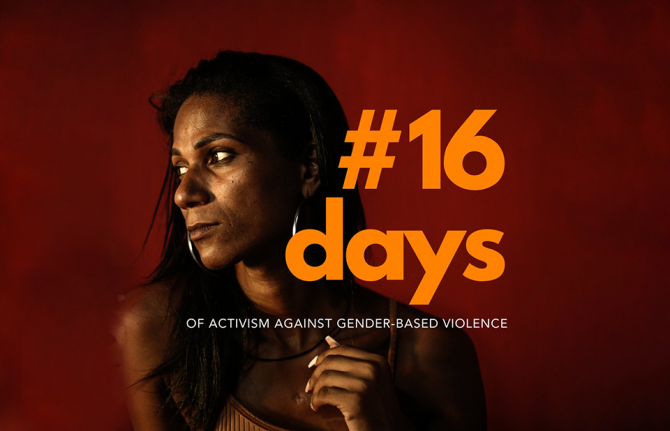
Press Statement
UNAIDS urges world to unite to end gender-based violence against women and girls
25 November 2022 25 November 2022GENEVA, 25 November 2022—On the International Day for the Elimination of Violence Against Women, UNAIDS is calling on the world to unite to end gender-based violence in all its forms and to challenge the gender inequities driving the HIV pandemic.
“Violence against women and girls is our individual and collective shame—a gross violation of human rights happening on an epic scale,” said UNAIDS Executive Director, Winnie Byanyima. “This pandemic of violence continues to drive thousands of new HIV infections every week and is making the end of AIDS much harder to achieve. It is a systemic issue that must be addressed at every level of society.”
Last year, 4900 young women or adolescent girls aged 15—24 became infected with HIV every week. One in three women and adolescent girls around the world have suffered physical and/or sexual violence from their husbands, male partners or strangers. This violence often takes place in their homes and neighbourhoods, where they should be safest. And this staggering statistic doesn’t include the millions more women and girls facing other forms of gender-based violence and harmful practices such as child and forced marriage, female genital mutilation and sexual violence.
In countries with high HIV prevalence, intimate partner violence can increase the chances of women acquiring HIV by up to 50%. Violence or the fear of it blocks women’s access to services and their ability to negotiate condom use with perpetrators, disclose their HIV status or stay on HIV treatment. Keeping girls in school is one way to decrease their exposure to violence and reduces their risk of HIV infection by 50%.
The World Health Organization has named violence against women a global health problem of epidemic proportions. Yet, decades after the Universal Declaration of Human Rights adopted on 10th December 1948 and The Convention on the Elimination of all Forms of Discrimination Against Women (CEDAW) instituted in 1979—the world is still talking about eliminating violence against women.
Today marks the beginning of 16 Days of Activism Against Gender Based Violence whose theme this year is UNITE! Activism to end violence against women and girls.
UNAIDS
The Joint United Nations Programme on HIV/AIDS (UNAIDS) leads and inspires the world to achieve its shared vision of zero new HIV infections, zero discrimination and zero AIDS-related deaths. UNAIDS unites the efforts of 11 UN organizations—UNHCR, UNICEF, WFP, UNDP, UNFPA, UNODC, UN Women, ILO, UNESCO, WHO and the World Bank—and works closely with global and national partners towards ending the AIDS epidemic by 2030 as part of the Sustainable Development Goals. Learn more at unaids.org and connect with us on Facebook, Twitter, Instagram and YouTube.


